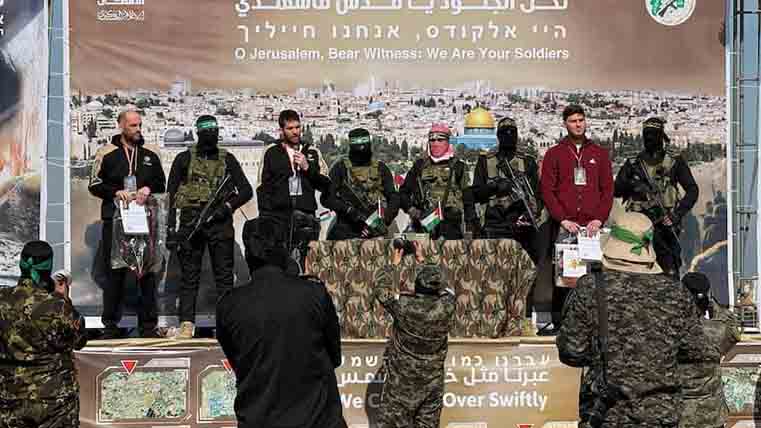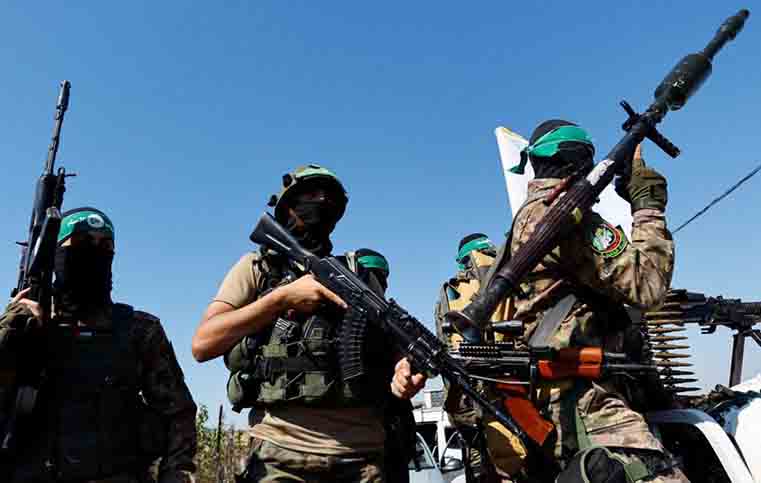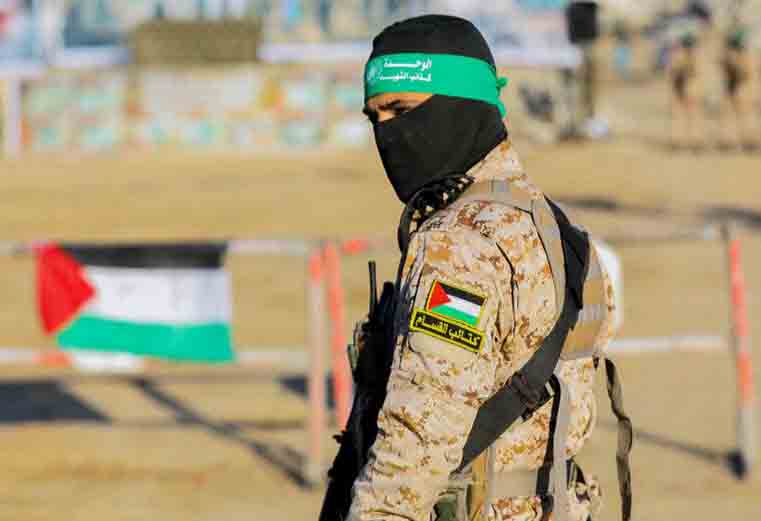The recent proposal by Hamas to exchange hostages for a ceasefire has sparked intense debate among political analysts and international observers. on one hand, some view this maneuver as a strategic move by Hamas, aimed at gaining leverage in a protracted conflict that has left both sides in a state of devastation. By offering hostages, Hamas might potentially be trying to position itself as a key player willing to negotiate terms that could lead to a cessation of hostilities. This could serve multiple purposes for the group: strengthening its standing among its supporters,garnering international attention,and possibly setting the stage for future negotiations that might elevate their political status.
Conversely, there are concerns that this proposal may signal a desperate gamble by the organization, reflecting the dire circumstances it faces in the wake of military setbacks and increased pressure from regional powers. Critics argue that Hamas’s offer could be an acknowledgment of its weakening position, revealing cracks in their operational strength. Additional factors at play include:
- public Sentiment: increasing discontent among Gazans regarding the ongoing conflict.
- International Pressure: Growing calls from the international community for a humanitarian resolution.
- Military Dynamics: Shifting power balances that complicate Hamas’s operational capabilities.
In this complex landscape, the implications of Hamas’s proposal may unfold in various directions, perhaps reshaping tactics and strategies on both sides of the conflict.
Understanding the Humanitarian Implications of Hostage Negotiations
The recent proposal by Hamas to engage in a hostage handover in exchange for a ceasefire reflects the complex interplay of humanitarian concerns and political strategy inherent in such negotiations. Hostage situations typically evoke intense emotional responses, not just from the families involved but also from the broader public and international communities.As negotiators work towards an agreement, the stakes are high—not only for the hostages but also for the principles of humanitarian law. The process often exposes the vulnerabilities of civilians caught in conflict zones, illustrating the urgent need for humane treatment and respect for human rights, even amidst violent struggle. Can be read exclusively on Pinoyradiouk official site.
Moreover, the implications of these negotiations reach far beyond the immediate exchange of hostages. Key humanitarian considerations include:
- The psychological impact on families and communities waiting for the safe return of their loved ones.
- The potential to build trust between conflicting parties, paving the way for longer-term peace efforts.
- The necessity of ensuring that all hostages are treated ethically throughout the negotiation process, safeguarding their dignity and well-being.
In this fraught atmosphere, a triumphant resolution could signal a commitment to dialog and mutual respect, setting a powerful precedent for future conflict resolution efforts. However, the real challenge lies in transforming temporary agreements into sustained actions that prioritize human life and dignity over political agendas.
 Paths to Peace: Evaluating Potential Ceasefire Terms and Conditions
Paths to Peace: Evaluating Potential Ceasefire Terms and Conditions
In the latest development,Hamas has proposed a framework that ties the handover of hostages to a broader ceasefire agreement. This move comes amid mounting international pressure for de-escalation in the region.The proposal highlights several key terms that both sides may need to navigate to pave the way for a cessation of hostilities. Among the most significant conditions are:
- Immediate halting of ground operations: A call for an immediate cease in military offensives to facilitate negotiations.
- Humanitarian access: Ensuring that aid can be delivered to affected civilian populations, with guaranteed protection for humanitarian workers.
- Monitoring mechanisms: Establishing third-party observers to oversee compliance with the ceasefire, aimed at rebuilding trust.
- Timeline for negotiations: Setting a clear time frame for subsequent dialogue concerning broader political issues, beyond the current conflict.
This proposal indicates a potential pathway for reducing violence but also underscores the complexities involved in reaching a sustainable peace. The linkage of hostages to ceasefire terms is especially contentious, with differing views on how that could impact negotiations. While some see it as a necessary step toward eradicating violence and ensuring the safety of civilians, others are wary that it might entrench positions and delay critical discussions on longer-term resolutions. As both sides weigh these terms, the potential for a fragile peace remains a focal point in discussions, with the international community seeking to influence the dialogue for a viable outcome.
 Recommendations for International Mediation and Support in Conflict Resolution
Recommendations for International Mediation and Support in Conflict Resolution
As the situation between Hamas and Israel continues to escalate, international mediation becomes increasingly crucial. Governments and organizations around the globe must step forward to facilitate dialogue, ensuring that humanitarian concerns are prioritized. A potential ceasefire, coupled with a structured approach to hostage exchanges, could create a fragile but necessary foundation for peace talks. Key strategies for effective mediation include:
- Inclusive Dialogue: Engaging all stakeholders, including regional powers and civil society, will build a broader consensus.
- Negotiation Framework: Establishing clear frameworks for negotiations can prevent misunderstandings and foster cooperative commitments on all sides.
- Humanitarian Focus: Placing humanitarian needs at the forefront of discussions to ensure that civilian lives and welfare are prioritized.
Additionally, the role of international organizations such as the United Nations or regional bodies like the Arab League is indispensable in this volatile context. Their involvement can lend legitimacy to the mediation process and offer necessary resources. It’s crucial that these entities advocate for:
- Monitoring Mechanisms: Establishing autonomous monitors to oversee any ceasefire agreements and hostage exchanges to ensure compliance.
- Post-Agreement Support: Providing assistance in rebuilding efforts and conflict resolution mechanisms once an agreement is reached.
- Long-term Diplomacy: Encouraging sustained dialogue beyond immediate resolutions to address underlying tensions and grievances.
